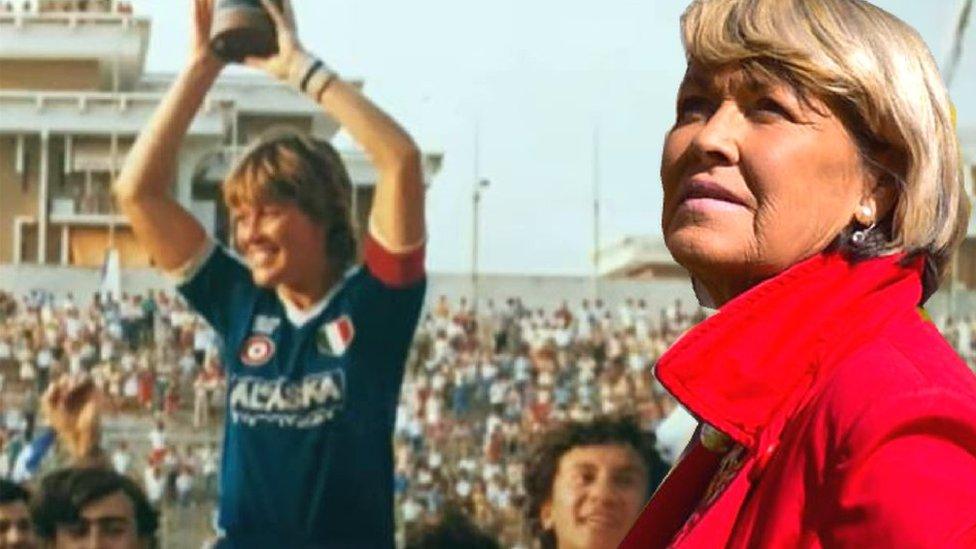Julie Fleeting: Breastfeeding at halftime and hand-me-down shirts
- Published
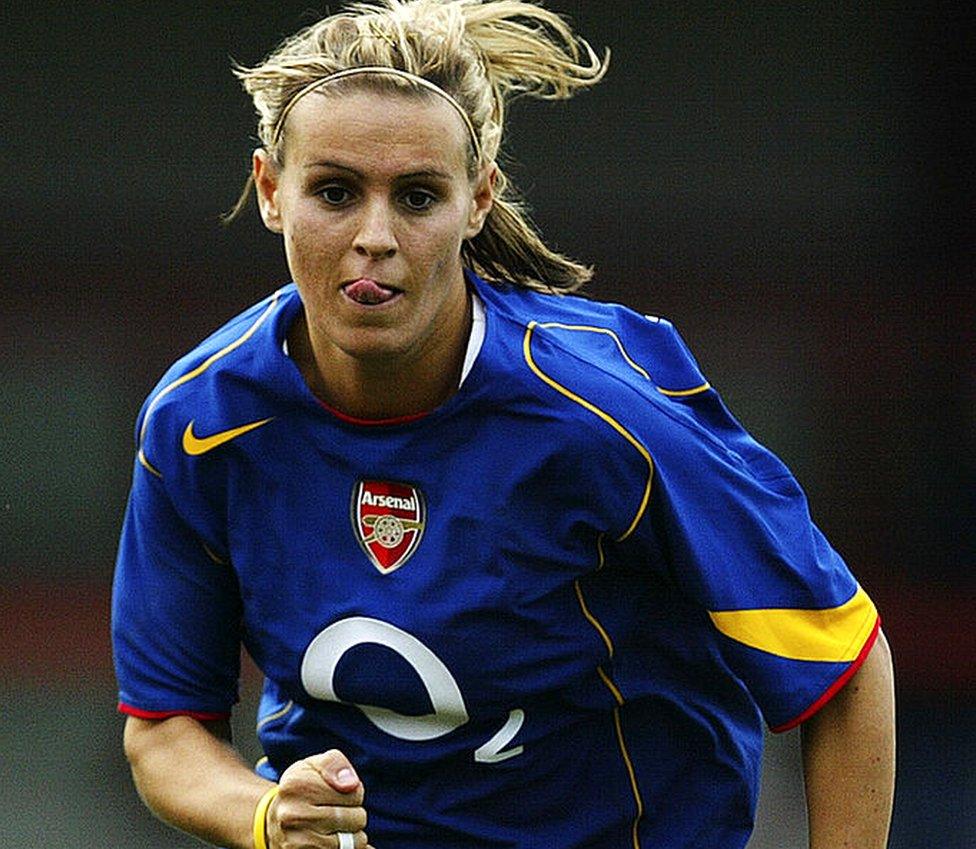
Julie fleeting won multiple honours with Arsenal
When Julie Fleeting retired from professional football in 2015, the game was drastically different from when she started.
The trailblazing player from Kilwinning in North Ayrshire was behind a lot of that change.
On the pitch she scored 116 goals in 121 appearances for Scotland, snatching the crucial goal in the infamous 17-0 victory against Lithuania in 1998.
Off the pitch she has set an example for her own three daughters and proved women could keep playing after having children, just like the men.
A new documentary on BBC Alba celebrates 41-year-old Fleeting, Scotland women's greatest goalscorer.
In an extensive career, she played in Scotland, the United States, Iceland and England.
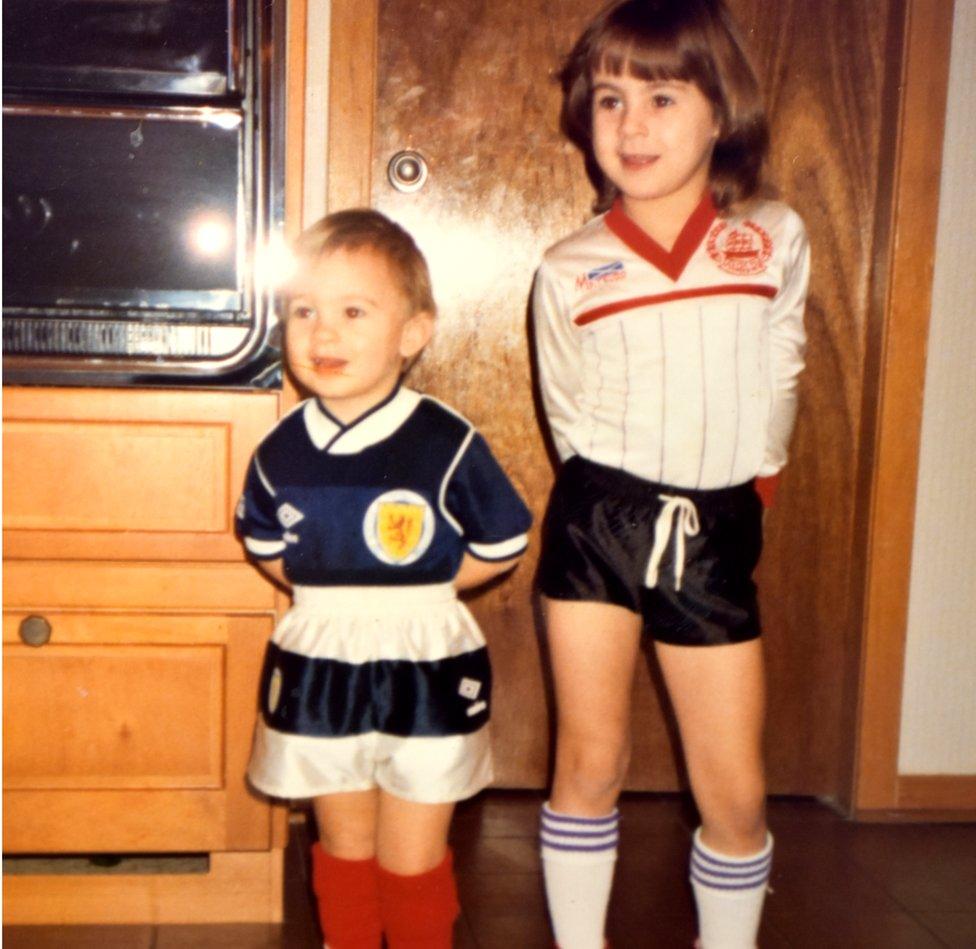
Julie, left, started playing at about four, and always got a game from her brother Barry
Julie started playing football at the age of four or five. It was a family affair.
Her father Jim was a professional footballer for Ayr United. Her brother Barry also played at junior level.
Julie said: "I assume that my initial love of football came from my dad. If the weather was good I was in the garden or street. If it was rainy we were in the kitchen playing football. I just loved it."
Cunninghame Boys Club offered her the first taste of a dream she didn't even know existed.
There's a lassie in their team
Club coach Mark Morrison said: "She arrived at the training and I was shocked, there was this young girl, tall, just barging the boys out the way.
"She was too good a player not to play in the team and you could see the enjoyment she got from it and her natural ability at a young age."
Julie said: "It was always 'there is a lassie playing in their team', every single game, but I couldn't care less what they were saying and pointing at me."
At 21, Julie was signed by San Diego Spirit in California, marking another first for a female Scottish player.
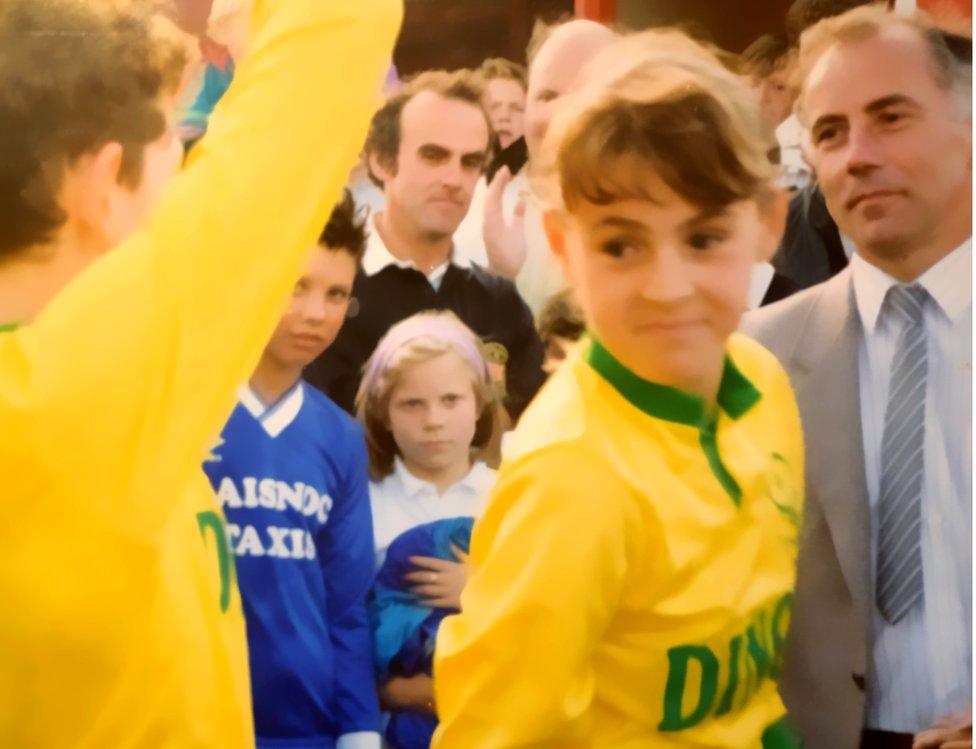
Julie's first team was Cunninghame Boys Club
She was successful on the pitch beside World Cup winners. She earned the team MVP and her club's golden boot. But off the pitch she struggled with homesickness.
Julie said: "It was the hardest thing I ever did in my life. I was moving to the other side of the world, without a mobile phone to contact people.
"I didn't know a soul. Everything off the field was really difficult for me.
"My parents were so positive about it, they said look at what you are doing for all the wee girls in Scotland."
Proud to be part of it
Julie was most successful with Arsenal.
Her first silverware came just months after she signed in 2004. Arsenal won the FA Cup in May thanks to a Fleeting hat trick.
In 2007, in a quadruple winning season for Arsenal, she won the prestigious UEFA Women's Cup, the forerunner to the Champions League. In total, Julie won 17 major honours with the team.
Being a woman in football was not easy. While at the London side, Julie worked full time as a PE teacher in Scotland, commuting every weekend to play.
Julie wasn't paid when she lost wages playing for Scotland. Players often had to pay for their own hotel rooms and they were given men's hand-me-down shirts three sizes too big for them.
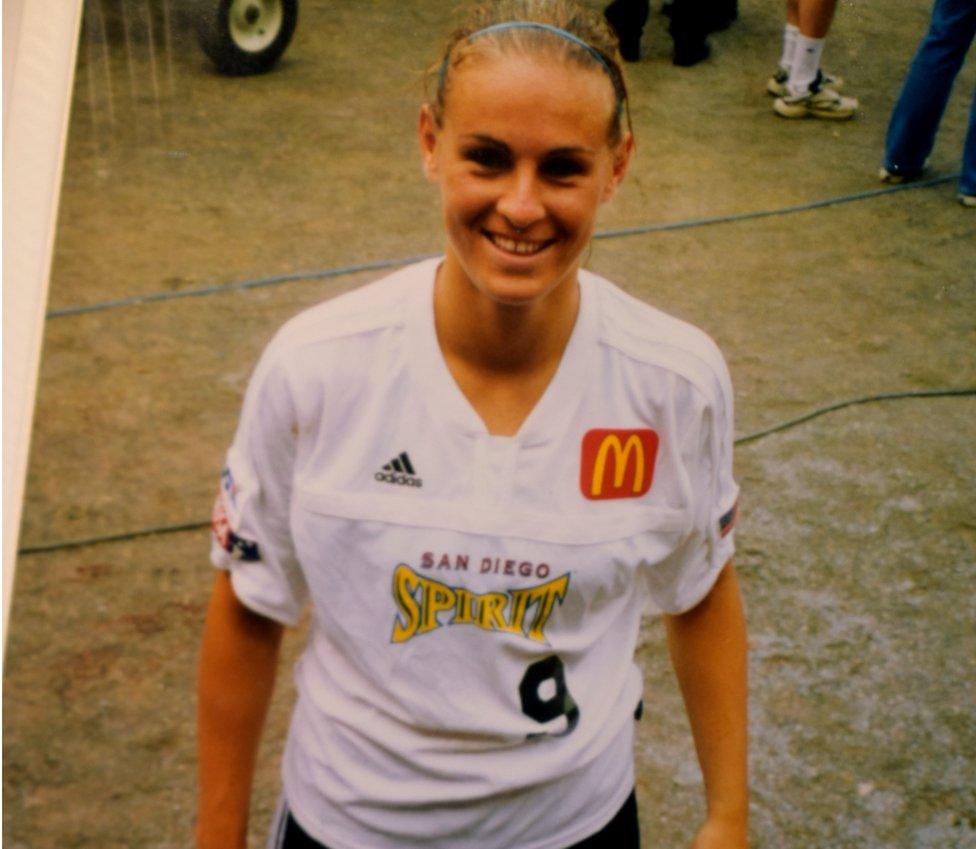
Julie Fleeting went to California to play professionally for San Diego Spirit
Julie said: "My expectation level was so low, that I was so grateful for every single thing that was given to me.
"But now that I've taken a step back and I look at it, it was so wrong that my brother could have been given the world - the opportunity to go all the way up the ladder and be paid to play football and stay in his hometown - and I had to move to the other side of the world to get that opportunity.
"Now I can see how far women's football has come and watch the players that have been developed through the game, I'm so proud to have been a part of it."
Julie was awarded an MBE in 2008. Her mum said; "Jim and I, Colin and Julie, went down the night before and we all went to the palace. It was such a proud day."
I wanted to be a footballer and have children
She became the first high-profile player in Scotland to return to play football after the birth of her children.
Julie's daughter Ella was born in July 2009 and within weeks she was back training and playing and inspiring her fellow players.
Julie said: "I was back within eight to 12 weeks playing because, for me, I wanted to be able to have children and still be a footballer. I wanted to show that the moment you have children you don't have to stop being an athlete.
"I had witnessed that in San Diego because there was a player Joy Fawcett out there who, when I joined the team, had just had her third baby and was breastfeeding at halftime
"She was one of the greatest players that I've ever played with. I thought that's what I want. I want to be a footballer and to have a family - I don't want to wait until the end of my career to be a mum."
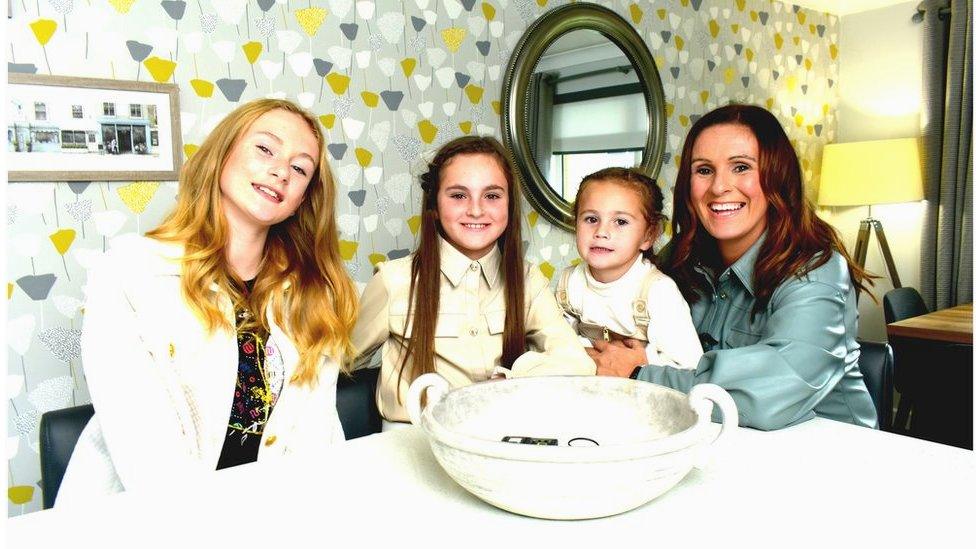
Julie Fleeting has paved the way for her daughters Ella, Sophia and Matilda
Julie's friend Suzanne Grant said: "She was a role model for me, for other players in the game and showed us that it is possible to do both. Once again Julie was the first person in Scotland to do it."
When Julie's second daughter Sophia was born in 2012 she decided to stop playing.
Julie said: "I stopped for probably three years after I had Sophia and I really missed it. I had lost who I was my whole life.
"For me, it wasn't just about being on the pitch. I loved off the pitch, the dressing room, the friendships, the laugh and joke before and after training. So I decided to get back into it."
In 2013 Julie began playing at Celtic and Glasgow City, and took her daughter with her.
She said: "To get the backing from (manager) Anna Signuel and the SFA was huge because I felt this was a turning point in the women's game. I was trying to show that it's okay to be a mum and still do all the things with your kids.
"I didn't feel ready to stop playing football and the Scotland team is a massive part of my life."
Julie's final appearance for Scotland was against Northern Ireland in February 2015.
'Julie Fleeting' is produced by PurpleTV for BBC ALBA. It is broadcast on Sunday, April 10 at 21:00 and will be available after on BBC iPlayer.
Related topics
- Published10 July 2021
